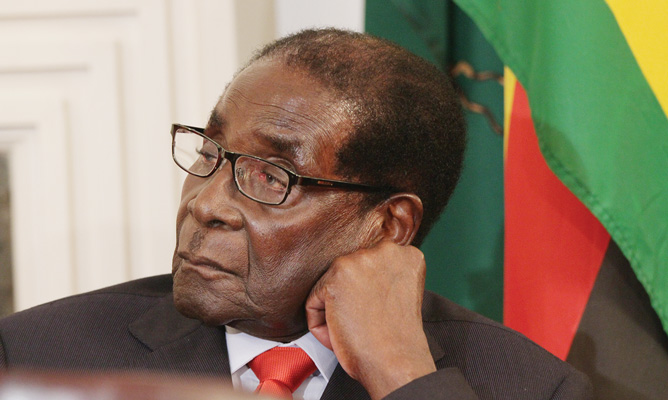
While most world leaders, including a number of African presidents and politicians, are leveraging the power of social media to engage with the populace in pursuit of democracy, President Robert Mugabe’s government has chosen to go the other way. They have threatened a clampdown on the use of the internet and other media platforms to escape scrutiny.
By Phyllis Mbanje
Mugabe has threatened to introduce stringent measures to monitor social media platforms in what analysts say is a way to silence dissenting voices and to stop the free flow of information.
“It is a way of holding on to power and escaping public scrutiny,” said University of Zimbabwe political science lecturer, Eldred Masunungure.
In some African countries, leaders and politicians have themselves taken to platforms like Twitter to propagate their daily activities, policies and political agendas to their subjects and the world.
Mugabe himself has shied away from social platforms despite the fact that he has an unverified Twitter account which was last used in August 2009.
He joins a list of other leaders with dormant accounts.
However, leaders like Rwanda’s Paul Kagame have maintained a heavy presence on Twitter with 1,1 million followers on the verified handle. He has been described as Africa’s “Digital President”.
- Chamisa under fire over US$120K donation
- Mavhunga puts DeMbare into Chibuku quarterfinals
- Pension funds bet on Cabora Bassa oilfields
- Councils defy govt fire tender directive
Keep Reading
South Africa’s Jacob Zuma assumed office in 2009 and was re-elected in 2014. His verified account has over 300 000 followers. Zuma has been at the centre of a protest demanding that he pays back the money spent on his KwaZulu-Natal mansion. The #PayBackTheMoney hashtag trended in South Africa and raised a lot of debate in the media.
Nigeria President, Muhammadu Buhari has over 200 000 followers on his verified personal @MBuhari handle.
Uhuru Kenyatta is Kenya’s fourth president and has been in office since April 2013. He has been on Twitter since 2010 with over a million followers.
Yoweri Museveni has been Uganda’s President since 1986. His verified account tweets his activities and opinions to over 145 000 followers.
“Creation of dialogue is a key feature of democracy which allows for leaders to be accountable for their actions and keeps them under public’s scrutiny,” said Masunungure. In countries like Kenya, anti-corruption campaigners organised themselves into a formidable force on Twitter. Any corrupt, fraudulent or criminal activity by the government or its agents is made public as soon as it is known.
During Tanzania’s elections, over 60% of eligible voters were under the age of 35, an indication that most of the sub-Saharan African societies are young people who are active on social media platforms.
However Mugabe says his government is considering going the Chinese way — restricting and controlling social media.
China’s internet control is one of the most stringent in the world, with authorities monitoring the Internet access of individuals.
According to Amnesty International, China has the largest recorded number of imprisoned journalists accused of crimes like signing online petitions, and calling for reforms and an end to corruption.
“The global trends cannot be ignored because they are modern tools for open dialogue. The intended clampdown is disturbing,” said Masunungure.
Another political analyst Alexander Rusero said there was a lot of suspicion of social media by authorities who believe it has enormous potential to influence politics. “The Baba Jukwa era shook the politicians big time and so there has been this big suspicion of technology,” he said.
The Zimbabwe Lawyers for Human Rights have reported that up to 150 Zimbabweans have been arrested since 2010 for allegedly insulting Mugabe via Whatsapp and Facebook.









